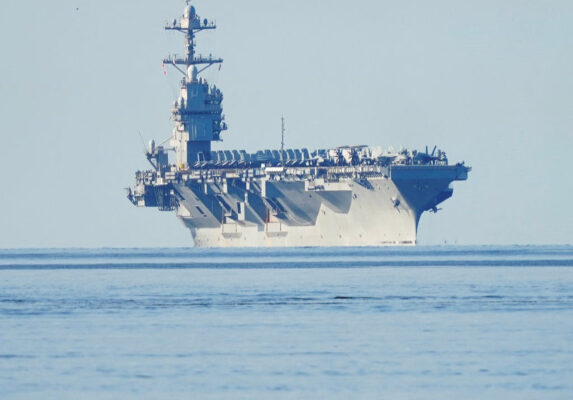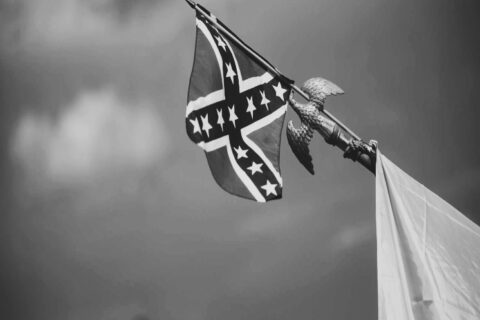Classical foreign policy, what most would describe as non-interventionism, is the most defensive and, therefore, the most defensible policy. There should be no foreign policy (as opposed to trade policy) towards nations a state is not actively at war with. The byproduct of having a foreign policy with a state that a nation is not actively at war with is that nation will be at war, largely through 4th generation means (terrorism from non-state actors within our own borders).
We all learn in school that WWI was caused by nationalism (despite the aftermath causing far more casualties) and entangling alliances. The unspoken reality behind entangling alliances is that they constitute a foreign policy, namely the ally state’s foreign policy. Much of the Islamic world has been candid in confessing that they view the United States’ entangling alliance with Israel as casus belli for war with the United States.
Equally bad, possibly worse, is entangling antagonism. Meddling in Syria against its sovereign government will get you instability in Syria at best, and retaliation from Syrian actors and their allies abroad at worst. Lest instability in Syria seem like a cheap price, the growth of ISIS depended heavily on this instability. ISIS perpetrated various attacks in the West, most notably the 2015 Paris attacks culminating in 131 casualties (not counting the attackers).
Under the Pax Americana, the world has seen no World Wars, but has seen no end of minor conflicts abroad and domestically. In Rome, they had a temple to Janus, who presided over the beginning and end of conflicts. When at peace, the doors were closed. When at war, they opened up. In Imperial Rome, the gates stood always ajar. Just so, since America became the world leader in both the UN and global dominance, the gates have always remained open. Since 1989, when the United States became the sole superpower (with Russia and China to emerge later), America took the metaphorical doors off the hinges.
Global Affairs counted the number of nations where the U.S. officially maintains active military installations at 80 (as of April 2024). Of the ever-shifting number of 195 official countries, this constitutes roughly 41%. This, of course, doesn’t include clandestine emplacements operated by the Central Intelligence Agency (CIA) and Special Operations Command (SOCOM). One can only estimate, but one could safely conjecture the number would approach 95%. If the sun never set on the British Empire, the US “unmpire” doesn’t miss a single time zone. The snarkier reader will note that UTC-12 or Yankee in Military Time Group (MTG) is uninhabited, but the area contains Baker Island. Baker Island, roughly halfway between Hawaii and Australia, is a U.S. territory.
The British had their share of instability during their tenure as the lead global superpower, not the least in the revolt of the United States, but these seem small, brief, and infrequent compared to the continual conflict across the globe today. During the Pax Britannica (1815-1914, roughly), Europe enjoyed 99 years of peace. People might point out that no major powers have entered a state of war in almost 100 years, if one doesn’t count stabbings, bombings, truck attacks, and the occasional arena-massacre. However, the list of places in the Balkans that had to change their names during the 90’s would challenge the notion of “peace in Europe.” Along with the Transnistria War and now the massive conflict in Ukraine, the Pax Americana only managed 46 years of peace.
To summarize, Europe has had sectarian wars that required the superpowers to dogpile the identified belligerents, a massive war egged on by the U.S. State Department and tacitly and grudgingly supported (with the notable exception of an enthusiastic UK) by European superpowers, and domestic instability and escalating crime rates that have made people reluctant to walk the streets of their own cities for the past 30 years. That was the supposed benefit of global hegemony by consensus under the UN and “global trade,” which means the U.S. and its financial interests. This benefit was supposed to offset the list of regional brushfires and open wars that resulted from twin policies of nations abandoning their colonies and the U.S. attempting to maintain soft control over them through monetary and diplomatic endeavors. “Diplomatic and monetary endeavors” may be shortened to “monetary endeavors” as all diplomacy begins and ends with “if you want financial aid.”
How do we let the tiger go without getting mauled? We cease any and all foreign aid. We maintain military bases as necessary to ensure the safety of international trade against piracy. We deport any and all who have a problem with the cessation of cashflow to their benighted place of origin which they fled in desperation. We cease poking competitor-states in the eye and daring them to do something about it.
The reason BRICS appeals to many nations is how relatively hands-off Russia and China are in their administration. The vassal states don’t have to worry about observing the correct victim month at their embassies or feigning support for vastly unpopular positions among their populace. They’re willing to take a pay-cut to be left alone. So, let’s leave them alone. We will secure the resources we require through trade. If the owners of the resources are unwilling to sell them, we will make do with what we have or we will go to war for them. But the war will be declared and conducted by the full will of the populace, and our nation will be able to justify it based on merit of argument. At the very least, the transparency of invading for resources would be a welcome and refreshing change from the tired lie of “bringing democracy.”






You write: “Since 1989, when the United States became the sole superpower”
1989? Did you mean to say 1949? In any case, there’s only one REAL superpower: that of the international global financiers. All others are just greater and lesser debtor nations.
1989 was when the USSR collapsed and we entered what Francis Fukayama called “the end of history.” Of course the hegemony of money has always existed. The vast wealth of the Italian city-states controlled Europe for centuries despite their military malfeasance. Apparently, buying a pope is a lot cheaper than buying an Army. We could talk about the Rothschilds’ purchase of England with the Napoleonic wars and their act of financial fraud which allowed them to ascend. We could talk about the financial mastery of the US economy through our vices. We could talk about how the US dollar is solely reliable based on the might of the US Navy and how, the Navy by concept is always in sorte diobali. We might have to go back to the Italian city states and discuss the Venetian ritual of the marriage of the sea and its pagan roots which Rome blessed given the coin they received as a blessing for tolerating it.
The Medici clan was always crypto, but they were replaced by the continental Rothschilds as the bankers of the Vatican. This directly led to the Reformation. Even E Michael Jones says if they didn’t kill Savonarolla and took his accusations about the excesses of Rome seriously, there would have been no Reformation. What right do (((Venetian))) bankers have to tell a German or an Englishman how he ought to live? Luther posed the question. England, blessed by God, was given a king who was moved to weigh these things in his heart. King Henry VIII was a very troubled man, but the deconstruction of him is at the root of the deconstruction of England. England’s act of defiance against Rome was the defining moment for them as a nation. One could argue (and I might in subsequent articles) that English Nationalism was born when Henry defied Rome.
Of course, there has been a lot of wickedness perpetuated under England. We, ourselves revolted against the excesses of the king. I reject the NRX line that it was an illegal war and in bad form. Yes, the propaganda was laughable and tiresome. Our forefathers had a valid complaint against the king in the Anglo-Saxon tradition. You don’t rule what you don’t control. We petitioned the King and our petitions fell on deaf ears. So we acted. We, unlike England and the continentals, haven’t lost as many Christian Souls as they did in WWI and the subsequent war. Our worst loss of life was in the bitter struggle of the War Between the States where courageous Southron men took up rifles to defend their homes and way of life and Boston forced Yankees at gunpoint to enforce their will.
That said, I appreciate your comment and I don’t take for granted the place that the money-changers hold in global supremacy.
Yesterday I read an article about how the Dutch had lodged a complaint. Chinese fighter jets had “harassed” one of their warships: https://www.cnn.com/2024/06/10/asia/chinese-military-harass-dutch-warship-intl-hnk-ml/index.html
Inquiring minds might want to know what a Dutch warship was doing so very, very far from its own native coasts.
Well, North Korea doesn’t have a central bank… owned by the “you-know-who”. Casus solvitur!
Regarding America’s curious urgency to impose “freedom and democracy” on an ignorant and superstitious world, the following might be of some help: https://citizenfitz09.blogspot.com/2022/03/the-price-of-freedom-or-based-america.html